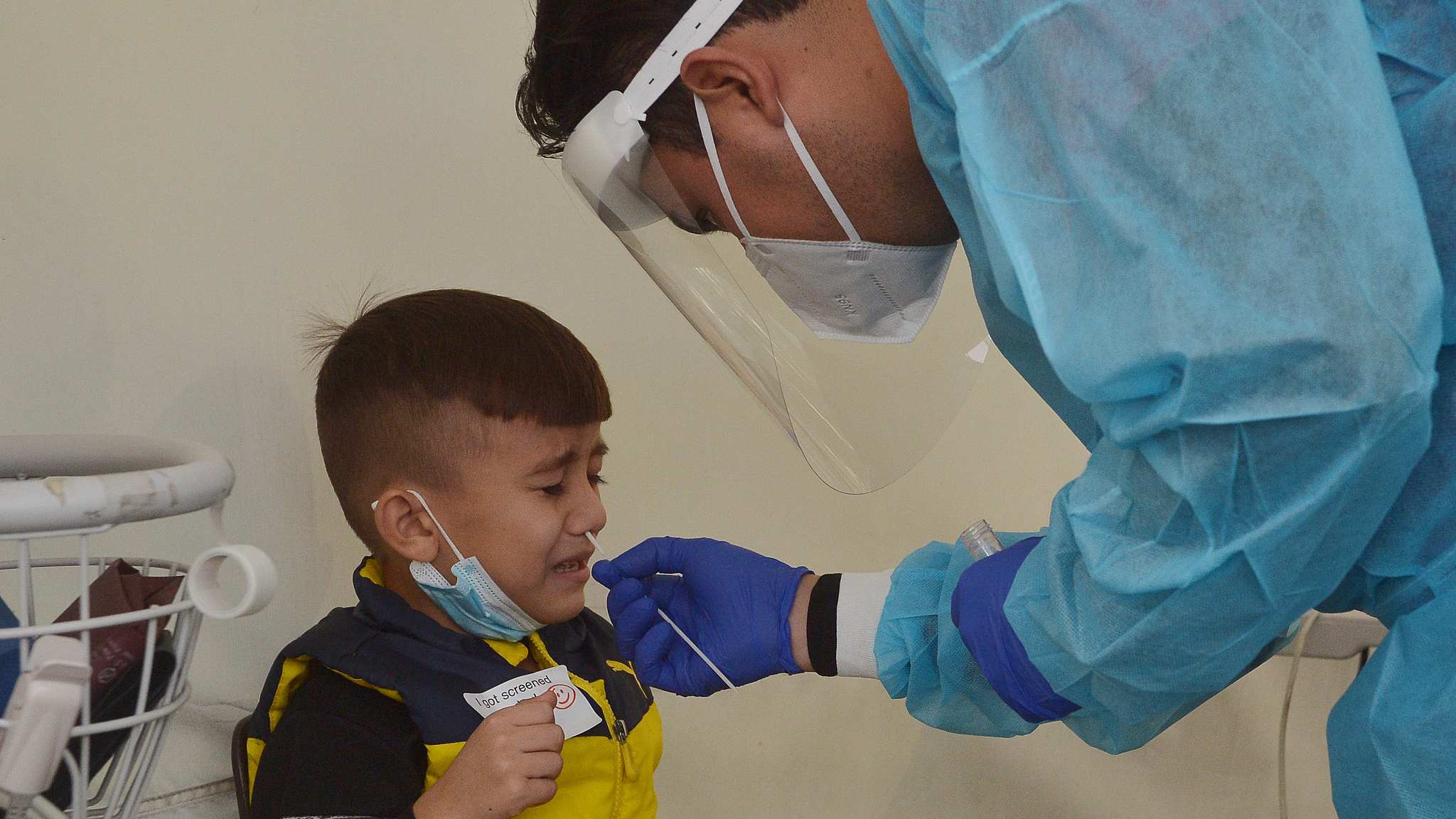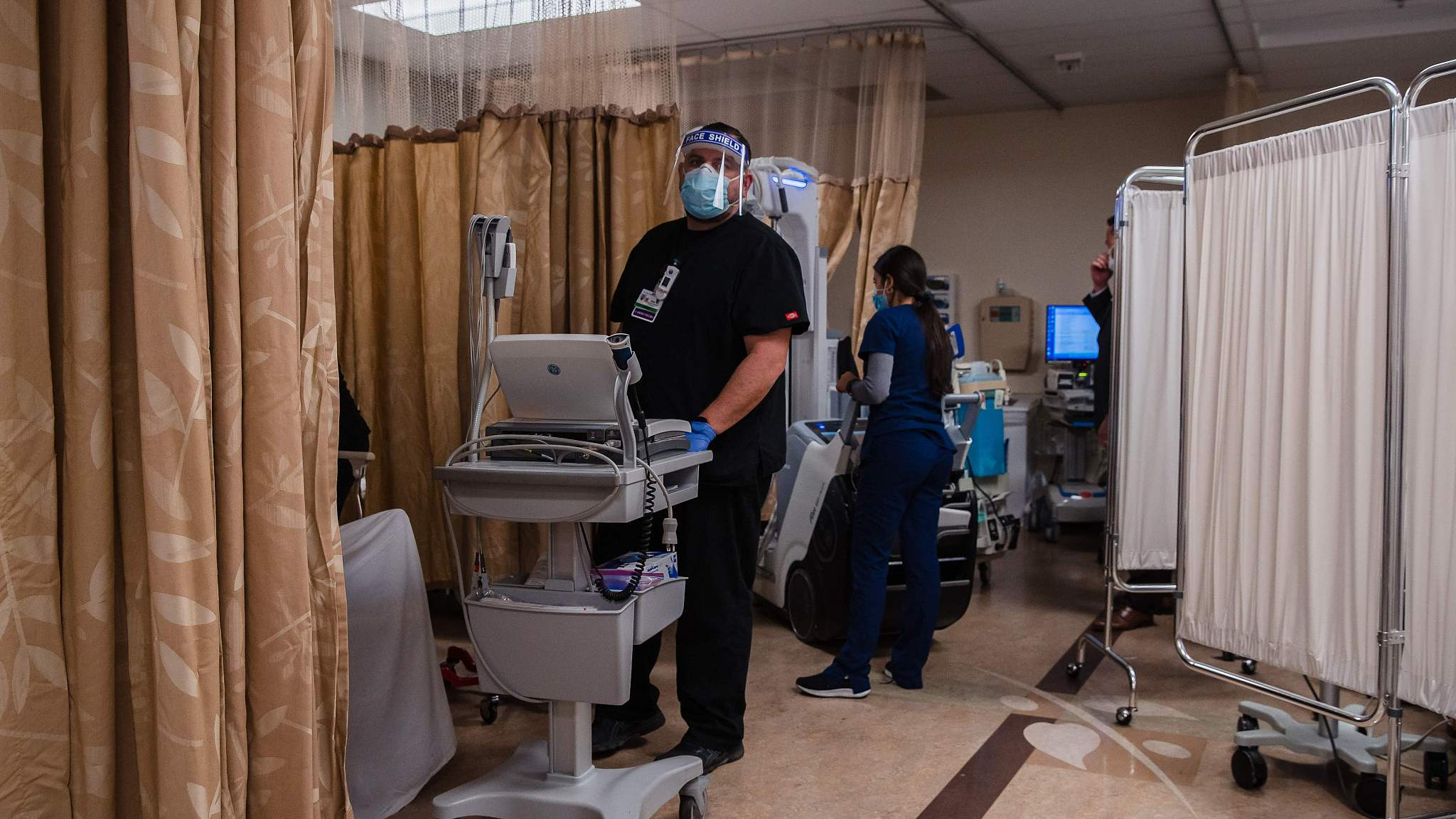
A young boy undergoes a COVID-19 test at St. John's Well Child & Fitness Center in South Los Angeles, U.S., January 12, 2021. /CFP
A young boy undergoes a COVID-19 test at St. John's Well Child & Fitness Center in South Los Angeles, U.S., January 12, 2021. /CFP
Editor's note: Bradley Blankenship is a Prague-based American journalist, political analyst and freelance reporter. The article reflects the author's opinions and not necessarily the views of CGTN.
COVID-19 data has almost completely focused on instances of death and illness, which have had a disproportionate effect on older adults, but a new study published by The Lancet shines a light on another related epidemic affecting children. According to the study, an estimated 1.5 million children around the world have lost at least one primary or secondary caregiver as a result of the COVID-19 pandemic.
"These unnamed children are the tragic overlooked consequence of the millions of pandemic dead," the researchers wrote in the study published on Tuesday. They predict that many more children will suffer a similar fate as the virus continues to spread in many countries and vaccines have yet to be equitably distributed across the globe.
The likely result: These children will probably suffer even more trauma in the future that might include mental health issues, abuse, chronic disease and poverty typical of orphaned children, plus the attendant sociological consequences of this widespread trauma for society writ large.
"The impact of these parental and caregiver deaths differs across families, communities and nations," the researchers noted. "Yet, there is one commonality: A child's life often falls apart when he or she loses a parent or grandparent caregiver."
On the positive side, as a separate report linked to the study points out, most of the children who lost a caregiver still have at least one caregiver who can take care of them. Still, the trauma of losing a caregiver is detrimental to a child's development and it also places a greater burden on surviving caregivers – which, for some communities with scant resources, poses serious challenges.
In fact, most of the children that lost a caregiver are in the Americas, notably the United States, Brazil, Mexico and Peru, as well as in South Africa and India, which are all among the most unequal societies in the world and have dilapidated social institutions. It can be said that the orphanhood epidemic will merely exacerbate existing systemic problems within these countries that were also highlighted during the failures to initially contain the virus.

Healthcare workers in a hospital in California, the United States, January 11, 2021. /CFP
Healthcare workers in a hospital in California, the United States, January 11, 2021. /CFP
For example, the U.S. has just seen a 1.5-year dip in life expectancy – the largest since World War II – because of the COVID-19 pandemic, but this was already a steady trajectory for the past several years thanks to so-called "deaths of despair" (suicides, drug overdoses, cirrhosis, obesity, etc.) driven by mental health issues. As a report by Mental Health America points out, youth mental health is worsening with 9.7 percent of youth in the U.S. having severe major depression – and, as of data from 2017-2018, a majority are not receiving adequate care.
The U.S. alone has an estimated 136,692 children that lost a caregiver during the COVID-19 pandemic, per the study, with no serious mechanism whatsoever to help them. Before the pandemic, the number of children in the U.S. foster care system was at an all-time high – and these children receive nowhere near the proper funding. Foster children receive less than 50 percent of what the average American family spends on raising a child, which is reflected in lower educational and job attainment later in life.
By and large, the same can be said for the U.S.' less developed peers in this category which spells virtually the same outcomes. It could also drive existing problems within some of these countries, such as organized crime and human trafficking.
At least in the United States, I can say from firsthand experience that there's an attitude that no one is resigned to their fate and that people should just work harder to get ahead. This is despite the extraordinarily documented statistics, for example, on how difficult it is to prosper in life at the same level as the average person after losing a caregiver.
This attitude, which I think is more accurately a delusion at this point since it is coupled with a stark disregard for human life (see: U.S. COVID-19 death toll), is simply wrong. We do, in fact, owe it to these children to help them succeed in life; we owe them a community, safety, shelter, sustenance and opportunity. The U.S. and other countries facing a similar orphanhood epidemic must help these children and not let them continue a worrisome trend of heavily disaffected youth.
(If you want to contribute and have specific expertise, please contact us at opinions@cgtn.com.)

